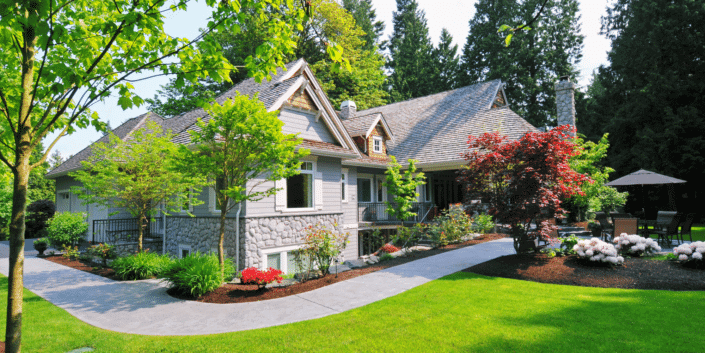
Trees not only generate oxygen but also perform a variety of other functions, which is why tree planting is important. They’re like huge, sticky sponges that absorb CO2 from the air and draw water down into the ground. Their vast root systems allow trees in forests to communicate hundreds of miles apart, and they provide nutrients to sustain our soils.
In the past two months, our Ecology program has helped us plant over 8,000 trees through the Subpod community, bringing our total to 23,500. It’s as if we had a little piece of Subpod Forest in our backyard!
Those reforesting trees in third-world nations are rebuilding mangrove forests, and restoring the foundations of riverbeds and coastlines. Coastlines especially benefit from the presence of trees since their strong roots prevent flooding and erosion and serve as a barrier against severe storms, substantially reducing tsunami damage.
However, it is not just coastlines that benefit from trees! Trees stabilize our soils by bonding them together with the carbon sugars produced by their roots and compressing our planet beneath their spreading root balls. If you live in a city or the suburbs, this data may not seem all that important, but growing trees in your garden can have fantastic benefits.
Why do you want trees in your yard?
1. Protect your home
Would you rather be standing in a field or a thick forest on a freezing, miserable day? Trees may function as a barrier against the elements, much like tall buildings. Planting trees around the perimeter of your property can lessen the impact of storms on your home and make those high winds considerably more peaceful.
2. Stay cool
In the summer, planting trees on your property is an excellent approach to lower the temperature of your home. In the warmer months, it’s ideal to plant deciduous trees that block sunlight while still letting sunshine into your garden. Deciduous trees are a fantastic choice for this, provided you don’t mind raking leaves.
Shade isn’t only beneficial for keeping you cool; it’s also great for your grass. We apply mulch to our gardens to keep them from drying out, but we must water our lawns frequently in the summer due to their extreme heat. Your lawn is more resistant to drying out with additional shade and, as a result, consumes less water!
3. Trap CO2 pollution
Trees clean the air in and around your home while also removing CO2 from it, which is beneficial to both. They absorb carbon from the environment and convert it into a form of sugar that soil microbes digest from their roots.
As a result, the process known as humification occurs. These microscopic creatures then reproduce and die, turning into what we know as humus – a particularly fertile soil with stable carbon chains. This method not only keeps the carbon your trees absorb from the air in your soil for good but also gradually improves it over time!
4. Make fresh soil for fresher lawns
4 components make up soil: water, air, minerals, and organic matter. The most essential component is an organic material, which comprises everything living (worms, plants, beetles, microbes) as well as dead or decaying items (worms, plants, beetles, microbes).
In the soil, tree roots (both living and dead) make up the largest portion of organic material, and when they die back, they feed the earth. This is why after pruning your trees, some extra roots will perish, resulting in an increase in organic matter in the soil… as well as a flush of growth from the trees! Trees also help to aerate the soil as they grow and their roots expand, which is essential for plant growth.
5. No more gumboots!
Is there a puddle of water in your yard after each rain? Soils become hydrophobic when they begin to dry up, which causes them to repel water. You may have noticed this while watering houseplants: the water will pool on top for a long period before seeping into the soil.
You may also plant trees in your yard to improve the soil and heal it from disease. Healthy soils retain more water, allowing for greater plant and grass development while requiring less footwear!
6. Free mulch
Nothing beats free mulch, and if you have deciduous trees on your land, you’ll get heaps of it in the fall! Shredding the leaves is easiest, and a basic leaf blower with a vacuum setting will do the job. Once they’re shredded, simply put down an even layer over your beds and save the rest for next year. Mulch is beneficial for your plants as it protects them from temperature extremes, keeps the roots moist, and suppresses weeds. It also helps to add nutrients to the soil as it breaks down over time.
7. Enjoy your native wildlife
There’s nothing more soothing than hearing birdsong in the morning or seeing small creatures scuttle between branches. Of course, there are advantages and disadvantages to allowing native animals on your land, but we believe they are well worth it. Birds distribute their seeds by dropping them in areas where other seeds will grow!
8. Reduce your bills
This is a major issue. Nothing relaxes the nerves like smaller expenses, and nothing soothes the nerves quite like tiny money. Trees’ ability to provide shade through their canopy and generate cooler air via evapotranspiration (say it three times fast!) makes them an excellent solution to your air conditioning needs in the summer.
There are further reasons to consider planting trees at home, such as the advantages of fruit trees and lovely blossoming kinds. Why not go for a stroll and begin planning out your ideal swing location or an exquisite apple tree?
Those are the reasons why you need trees in your yard. Since you now are going to have trees in your yard, make sure to give the Wilder Tree Company a call to help with yearly tree care!